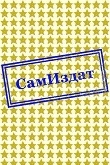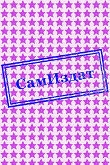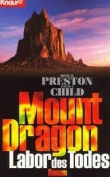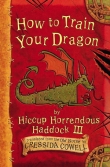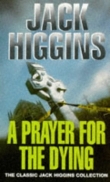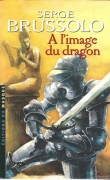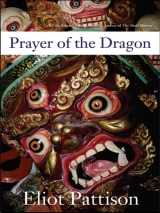
Текст книги "Prayer of the Dragon"
Автор книги: Eliot Pattison
Жанр:
Полицейские детективы
сообщить о нарушении
Текущая страница: 6 (всего у книги 24 страниц)
“The ruler who brings a nation’s enemies to their knees is beloved of his people,” Kohler replied, “but the men who give that ruler the means to do so are beloved of the ruler. Gao was never interested in public displays of affection.”
“Beloved enough to dictate the terms of his retirement.”
“A small price. An infinitesimal price.”
Shan gathered up several dishes and darted into the kitchen, before Kohler could protest. Gao was nowhere to be seen.
“Tashi delay,”he greeted the housekeeper in Tibetan. She replied in kind with a polite smile.
He asked her if she was from Drango village. She did not answer and hurried away as Kohler appeared to herd Shan back to the dining room. The youth was at the window, watching the storm below. He hesitantly answered Shan’s questions, explaining that he had lived in Shanghai until his uncle had arranged for him to study astrophysics at Beijing University.
“Perhaps you can compare notes about the faculty,” a cool voice interjected. Gao had returned, and fixed Shan with an analytical stare. “Or perhaps,” he said to his nephew, “you should start by asking our guest what kind of fool rejects the offer of a senior Party status sponsored by a minister of state.”
Shan’s gut began to knot.
Gao came closer. “You netted a unique specimen, Heinz,” he observed. “A special investigator for the Ministry of Economy, in charge of secret cases for the State Council. Cases of great importance. Once an official Hero Worker, privy to the most confidential matters of state.”
Gao had focused on Shan’s tattoo for no more than five seconds, yet he had not only memorized the numbers but in the span of a few minutes been able to reach one of the very few cadres left in Beijing who knew how to locate Shan’s file.
“A highly strung pedigreed hunting dog who turned on his handlers,” Gao continued, studying Shan suspiciously. “After a few years of hard labor he was let loose in the Tibetan wilderness by a colonel he did a favor for. He defies the laws of physics. In an age when scientists can turn dirty rocks into diamonds, he is the diamond who became a dirty rock.”
“In Beijing there are so many diamonds their radiance was blinding,” Shan replied. He eyed the exits, mentally gauging how quickly he could make it to the pass, comparing that to the response time of Gao’s soldiers, and wondering how good a shot Kohler might be when his target was moving.
“You thought you could send one of the most powerful ministers in Beijing to the gulag. A personal friend of the Great Helmsman.”
“I started tracking the dollars he had sent to secret accounts in Switzerland. I lost count after twenty million.”
“Where is he today?”
“He died in office and was given a hero’s funeral while I was in prison.”
Kohler laughed first, but Gao soon joined in, followed by young Thomas. Shan stared out the window. His gaze settled on the lammergeiers’ nest. The predators on top of the food chain on this particular mountain liked to consume their prey while it still breathed.
Eventually he became aware that the others had left the room. When he tried to follow he found that the doors were locked. He pressed his ear against each door, but no sound betrayed his captor’s activities. He paced around the table, then slipped his shoes off and sat, lotus style, atop the bare table, his eyes on the mountain across the valley, his hands folded into a mudra. His fingers were intertwined, the index fingers raised and pressed together like a steeple. It was called Diamond of the Mind, for keeping focus.
He wasn’t aware of the door opening, only of Thomas appearing in the chair nearest him, holding two bottles of water. The youth, new excitement in his eyes, handed Shan a bottle, a peace offering.
“How many criminals have you killed?” Gao’s nephew asked.
Shan shuddered. “I never carried a gun,” he finally replied.
Thomas seemed disappointed.
“But my investigations sent over a dozen men to firing squads,” he offered.
Thomas brightened. “I have told my father and uncles that I plan to enter the Academy for Forensic Science.”
“I once taught there,” Shan said, slipping off the table to sit close to the youth, eye to eye. “A guest lecturer.”
Thomas saluted Shan with his bottle. “My uncles tell me I am destined for great things. They want me to become an astronomer, for when China has its own space station. Uncle Heinz calls me the first citizen of the new world. He says they can get me into the astronaut corps when I finish university. But when I arrived here this summer I told them I wanted to enroll in the forensic academy, because that is where science and real life come together. They laughed at me.” He took a swallow from his bottle. “But they’re wrong. I saw the head of a murder investigation squad in Beijing, driving a Mercedes. In America they have red convertibles.”
A dozen rejoinders came to mind, but as Shan sifted them, realization burst upon him. “Give me your opinion of the murders.”
Thomas glanced nervously toward the closed doors.
Shan said in a quiet, conspiratorial tone, “Surely there is only one other person on this mountain who knows how to treat a murder scene. The trick with the glue, that shows great resourcefulness. Did you use a spoon and match?” It was an improvisation Shan himself had used more than once in his prior life. The isocyanate of the industrial glue adhered to the oils in fingerprints, producing a print of gray raised ridges.
Thomas flushed. Then he admitted, “I took photographs. I took fingerprints. Everything. I put particles of bone in plastic bags. I am making a special portfolio for my academy application, to guarantee my admission.”
“Everything?”
“You know. Tissue samples, for DNA. Blood samples The dirt from their boots. I recorded the direction of the wind, the time of sunrise, air temperature. The entry wound to the back of Victim One was inflicted by a heavy-edged weapon and probably severed the spinal cord. The puncture wound in the skull of Victim Two could have been from a large-caliber bullet.”
“I think the killer stood right beside his victims,” Shan explained. “I doubt if he used a gun. Did you see any stippling on the skin around the hole? When a gun is fired at close range particles of burning gunpowder leave traces.”
Thomas’s eyes widened. He pulled a piece of paper from a pocket and scribbled a quick note, then began to brag again. “I took a fly larvae out of the flesh and froze it. We can correlate the life-stage development of the larvae with other indicia, to confirm my finding of the time of death.”
“And how exactly did you make your finding?”
“Rigor mortis. The hardening of the skeletal muscles begins within two to three hours and begins to dissipate within twenty-four hours. When I found the bodies in the morning the stiffness was just disappearing.”
“It may be dangerous to rely on such criteria when the limbs have been severed.”
“The hands. Only the hands were cut off at first. I do wish I had the hands.” Thomas fixed Shan with a meaningful gaze. “Even if the flesh of the fingertips was deteriorating we could inject them with saline solution to raise the ridges enough for prints, right? And I could probably match the hands to the bodies from my photographs and even draw inferences about their professions.”
Shan went very still. “Are you saying you have photographs?”
Without another word the boy leapt up and shot out the door. He returned panting, extending a small silver digital camera. “I haven’t printed anything out, but you can view them right here. The hands were gone when I discovered the bodies. When I returned with my equipment the bodies had been dismembered and some of the limbs were missing.”
His camera held a dozen photos, and though the small screen did not display much detail, there was enough. Shan had to calm himself before taking a second look. Unfortunately, Thomas had taken pictures only of the small clearing where the bodies had been, not of the campsite itself, and none of the two men’s faces. Their clothes were blood drenched. The shirt on one of bodies also bore soil stains showing its wearer had been dragged. One appeared to be younger; on his back was a long wound, as Thomas had described. The flat rock in the center of the little clearing still had one arm stretched across it, in the direction of the low sprays of blood. Shan pointed to the puncture wound on the older man’s skull. “The edges are not uniform enough for a bullet entry.”
Thomas nodded. “And there was no stippling. You have changed my theory of the case.”
“You have a theory?”
Thomas nodded again. “I have to have a case theory, a hypothesis, for my project. The criminals were runaway soldiers, that was my first idea, deserters turned bandits. But if there was no gun, then I will say the culprits were Tibetans, a gang of hooligans with axes and hammers.” He looked up, his eyes brighter. “Ragyapa! It could be a gang of criminal fleshcutters. This could be a movie script!”
“Ragyapa remove the clothes from corpses before cutting them up,” Shan pointed out. “And they don’t take away body parts. They leave them all at the scene. And they crush the bones.”
Thomas frowned. “Reactionary Tibetans then. The first victim lingered. A cloth was stuffed in his mouth to silence him.”
Shan nodded solemnly, wondering about the boy who coldly took photos of dismembered men for a school project. “What exactly did you do,” he asked, “after your first visit?”
“I went back for one of Heinz’s guns. When I returned there were dogs circling about the rocks. I fired the rifle and they ran.”
Shan stared at the boy in disbelief. “Another approach,” he observed in a steady voice, “might have been to wait in hiding with your camera, in case the murderer returned to dispose of the bodies.” If Thomas had scared away the dogs, then certainly he would have spooked the murderer.
“But then my portfolio would have been incomplete,” Thomas pointed out. “I still had to lift the fingerprints and evaluate the angle and force of the cutting instrument. The dogs would have destroyed evidence and contaminated the crime scene.”
“And your conclusion about the instrument used to cut off the hands?”
“It had to go through bone and ligament. A surgical bone saw would fit.”
It wasn’t so much an investigation, Shan told himself, as a word game. Sound bites from famous detective shows I have watched.“I’m old-fashioned,” he said. “How about something that fits the context, like a small ax? It would account for the wound in the back and the severed hands.”
Thomas nodded, making more notes.
There were four more photos of the dead men. The young one had worn denim pants and a sweatshirt; the older man, a T-shirt and sweatpants. The other eight photos were all of bloodstain patterns.
“Why were you really imprisoned?” Thomas asked. “I saw a movie once where an investigator was sent to prison to infiltrate a criminal ring. Did you kill anyone in prison? A good policeman doesn’t need a gun. I have a book about the ten ways to kill with your hands.”
Shan clenched his jaw. As unlikely an ally as Thomas might seem, Shan needed the boy. “I saw many people die in prison.”
Thomas hesitated, then nodded. “Of course, if it was true, you would deny it. The best ones never break their cover.”
“I can see you have a brilliant career ahead of you in Beijing.”
“Would you write a letter of recommendation for me?”
The charade was getting out of hand. “Your family has imprisoned me,” Shan pointed out.
“But I unlocked the door,” Thomas declared.
Shan pushed open the door to the large sitting room with a finger. He stepped into the empty room, then eyed the door that led outside. He returned to Thomas and leaned on the table beside him. “Where is your evidence? Your samples?”
“I sent them to Beijing, to a friend in a lab.”
Shan paced around the room. The adjoining office was empty. “Why did you cross to the other side of the mountain? Why go to the trouble, when you have all this?”
“This is my uncles’ stuff. I’m my own man. I do my own thing. They wouldn’t approve but I’ve made friends of some of the miners. They are always looking to trade things.”
“What do they have that you could want?”
“Gold, of course. I can get them little comforts. A can of peaches, a bag of raisins, a toothbrush, a razor. Vodka and brandy. The closest store is fifty miles away. Everyone is in business, right? Uncle Heinz says we all participate in the global economy, no matter where we live.”
Thomas’s particular home in the global economy, Shan realized, was a storehouse replenished regularly by the People’s Liberation Army. “How often do you go to Drango village?”
“That dump where the farmers live? Never.”
“Then how often do you see Chodron?”
“That old yak? He stays in his wallow on the far side.”
Shan considered the boy’s words. He said he never went to the village but he had admitted that he knew who Chodron was. Shan picked up the camera and asked Thomas to show him how to scroll through the photos, pausing at the last, a tiny one of the man sometimes called the saint, sitting between the blood-drawn images. He leaned over the boy, speaking in a low, urgent voice, Thomas nodding assent to his secret assignment. When they finished, Shan scolled through the photos one more time. “Did you look for identification on the bodies?”
“Everything was covered in blood. I brought plastic gloves when I returned but-”
His answer was cut off by an angry exclamation from the dining room. Kohler stood near the door, glaring. Thomas colored, then without another word trotted toward Kohler, who led him into the kitchen.
Shan darted toward the entry, then hesitated and slipped into Gao’s office instead. He spent a moment surveying the framed photos, ashamed at the quiver of fear that some of the familiar faces sent down his spine. Lingering at the back of several photos, looking like a tourist who had wandered into the scene, was a younger Kohler.
On the desk were recent letters, most sent by fax, from addresses in Beijing. He glanced at the small gray fax machine at the side of the desk that had received the letters. It meant there was a telephone wire strung from the base below, but it also might mean there was no reliable electronic mail connecting Gao’s little palace to the outside world. He quickly scanned the faxed messages for their originators. The Academy of Scientists, arranging a speaking date for a conference in January. The Special Science Section of the State Council, one of the unofficial, private little committees that advised Beijing’s top echelon. The director of civilian personnel for regional military bases, asking for staffing recommendations. The Party Council on Scientific Policy, seeking review of a secret research paper.
Beside the correspondence was a rolled-up newspaper. On closer examination Shan saw that it was not simply rolled but taped tightly to form a cylindrical package. One end had been sealed with tape, the other was cut open. Shan upended the tube, dumping out a hard object wrapped in the coarse toilet tissue used in most Tibetan homes. A second later he held it in his hand. Despite Gao’s assurance to the contrary, someone had come from the other side, from Drango. The gold beetle glistened more brightly in the sunlight shining through Gao’s office window than it had in the light of the butter lamps in the stable. He recalled Gendun’s punishment and Chodron’s obsession with sending the beetle back to where it belonged. Shan looked up at the nearest photo of Gao, a portrait in which his breast gleamed with the medals bestowed on civilians who performed vital services for the state. Shan had found the home of the mountain deity.
He pushed the golden beetle back into the tube and headed for the door to the outside. With a surge of relief he felt the knob turn. The door opened. But as he stepped outside Kohler looked up from a nearby rock where he sat smoking a cigarette.
“Do you have any notion how quickly our garbage disposal system works?” he asked. “One call, and a squad of soldiers appear. Then our garbage disappears forever.”
Shan looked longingly at the cliffs above, the route back to his world. “But you and Dr. Gao don’t like to reduce yourselves to that level.”
Kohler grinned. “Something like that. And you present such an interesting opportunity for us.”
“If you are looking for kitchen help, I am always dropping things.”
“Comrade, you are going to have Gao rolling on the floor,”
Kohler said and gestured Shan back into the house.
Four hours later he sat with Kohler on the square stone-walled roof of the high tower. The room under the roof in which Kohler had locked him was the most agreeable of prisons. Though a windowless chamber, it contained an actual bed and linens. Before locking him in, the German had explained that he and Thomas had similar rooms on the levels below.
Kohler had invited Shan to the roof to watch the sunset with a bottle and two glasses, and was now holding the fifth glass of pepper vodka he had consumed. Shan had sipped from the first glass of the pungent liquid when Kohler pressed it on him, then clandestinely tipped the contents over the side, only to have the glass refilled.
“We’re all outlaws of a sort,” Kohler said, his eyes reflecting the purple light of the dusk. “How could any sane man not be, in this world we have created?”
“Have you been away from home long?” Shan probed.
“Home? What’s home? My homeland was declared redundant. Mergers and acquisitions, they call it. Someone in Bonn or maybe Washington decided to make a takeover offer so good it couldn’t be refused. Presto, no country. Just a bunch of branch offices reporting to what had once been our biggest competitor. Entire towns were discontinued. I got a letter from my sister, who once headed a school. She scrubs floors in Frankfurt now. But she has her own car and a mountain of debt so she is happy as a pig in mud.” He saluted the sunset with his vodka glass. “Lha fucking gyal lo.
“I never really had a home there anyway. I came to Beijing as a doctoral student on a special exchange program for physicists. Dr. Gao took me on as a special assistant. The first year we communicated by drawing equations on chalkboards. By the time I understood Mandarin I was already living in a spare room of his house, though we spent damned little time sleeping in those days. I could go home and be a cog in a wheel of Moscow’s science machine or stay and live out every scientist’s fantasy. Unlimited resources. Billions and billions. Unlimited glory.”
“At least within certain bureaus in Beijing,” Shan submitted.
Kohler saluted him with a clumsy sweep of his glass. “Once wars were won by the side that could best afford to keep sending men to the slaughter, which for centuries made China the mightiest nation on earth. Every man with a beard who rode out of the West was smothered by a hundred Chinese. “Now it’s a game of cards. Small men at a big table play guessing games about what equations the other side’s big men have written on secret chalkboards.” Kohler burst into laughter, then drained his glass again.
“If you have a chalkboard,” Shan said, “I would guess it’s full of questions about two murders that took place on the western side of the mountain. You betray your concern by holding me.”
“What we worry about is the inexplicable. Death happens all the time on the other side of the mountain, it’s to be expected. It’s like the Wild West over there. You know, American cowboys,” he said, using the English words. “But you, Inspector Shan, are inexplicable. Why do you appear at this moment? That worries us. We had another escaped prisoner once. He was found looking in the windows. He begged us not to call the army. He offered to be our slave, offered to go back over to the other side and bring us gold. Thomas guessed you must be a secret agent of some kind. I laughed.” Kohler examined Shan for a moment. “What explains a man like you?”
Shan became aware of music rising from below, a confused mixture of sounds that he eventually distilled into muted rock and roll overlaying the more distant tones of Beethoven. “That other prisoner. What happened to him?”
“He was annoying. Too nervous. Too talkative. I arranged for him to disappear.” Kohler poured himself another glass of his medicine. “But you, you are like a monk. You are focused, quiet. You have secrets. We have learned to be very careful about gray men with secrets.”
“I am nothing but what you see before you. My gray clothes are rags.”
Kohler drained his glass again.
The sun had disappeared over the ridge. The purple sky became streaked with silver. The narrow cleft had long since disappeared into shadow but not before Shan had fixed in his mind’s eye its location and a line of outcroppings that led straight to it.
“This Rapaki you spoke of earlier. Does he live in a cave?” Shan asked abruptly.
“Who?”
“The hermit no one wishes to discuss.”
“He’s harmless. Forget him. He’s just a goat with a robe. You might glimpse him in the distance before he scampers away.”
“Forgetting things. That seems to be the house specialty here.”
Shan refilled the two glasses, toasted the German, stealthily dumped his over the side, and refilled Kohler’s again. Kohler held the glass under his nostrils for a moment. “A good retirement requires discarding the last moment and living in the next.”
“Sounds lonely.”
“Sounds painless,” Kohler retorted. His head began to roll. He had to exert himself to keep it upright.
“I’m sorry we won’t have more time to get better acquainted,” Shan said. Kohler did not protest when Shan took the glass from his hand and set it on the wall.
“I have hidden the fucking key,” the German mumbled, though he seemed unable to move. “You will stay until the dragon decides to eat you.” Then he passed out.
Shan arranged Kohler as comfortably as possible, taking the precaution of removing the man’s shoelaces and using them to tie his hands to the arms of his chair before Shan descended to his bedroom. Kohler had proudly pointed out the nearby linen closet. Shan did a quick calculation, then removed ten sheets from the closet, quickly returned to the roof, and began knotting them together. One of the many things his years in Tibet had cured him of was his fear of heights.

